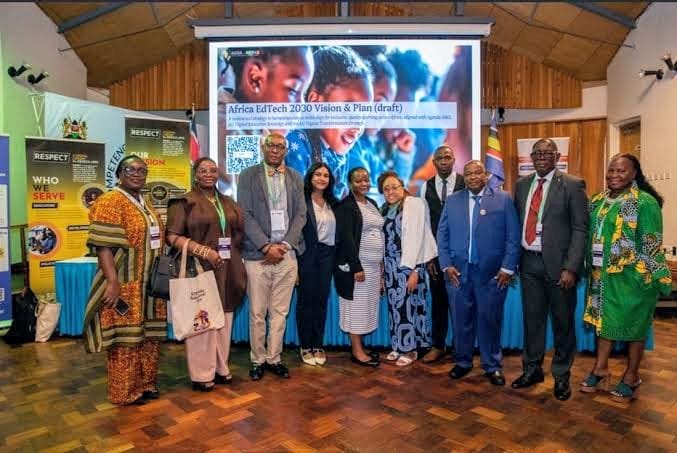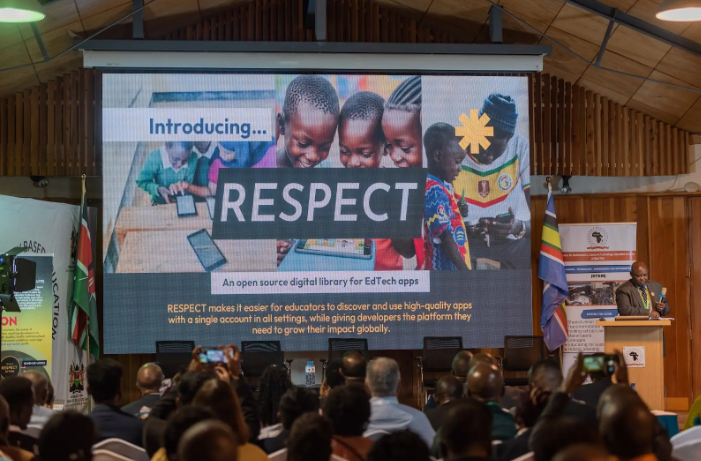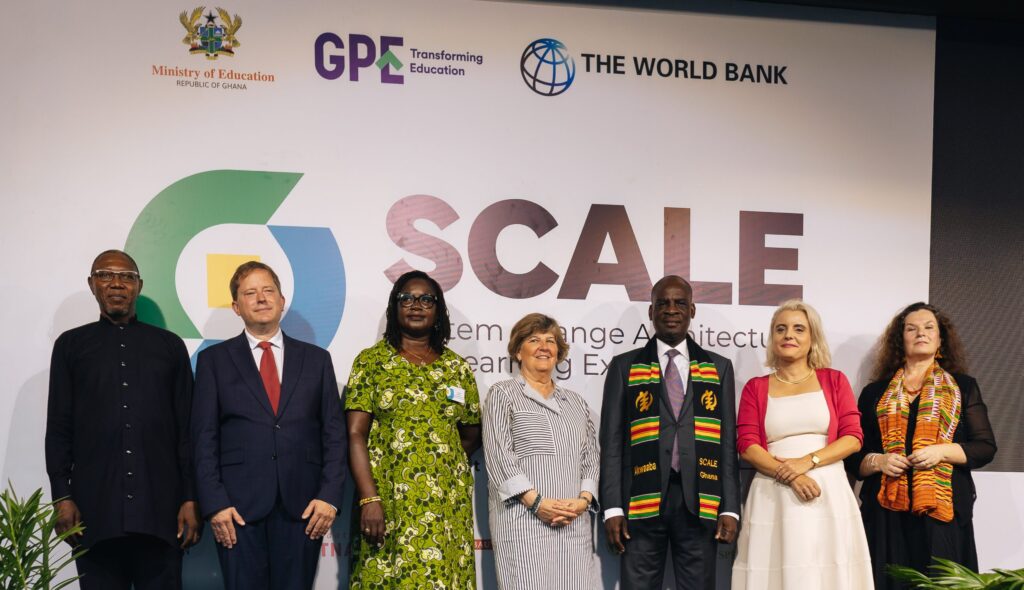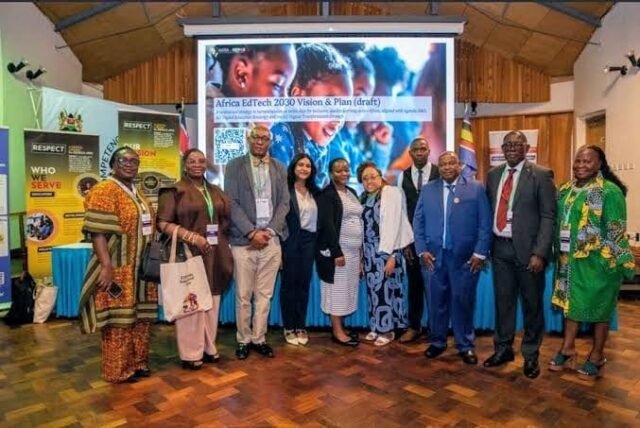In a landmark moment for education on the African continent, the African Union Development Agency–NEPAD (AUDA‑NEPAD) has released the draft EdTech 2030 African plan for education technology Unveiled, a bold framework designed to revolutionise learning by 2030. Officially presented at the recent STEMtastic Adventures! The Africa symposium in Nairobi, this strategic blueprint lays out a clear roadmap for building a digitally‑inclusive education ecosystem across Africa.
Table of Contents

A Vision Rooted in Continental Priorities
The EdTech 2030 African plan for education technology unveiled aligns closely with flagship continental initiatives such as Agenda 2063, STISA‑2034, CESA 2026‑2035, and the AU Digital Transformation Strategy. By integrating these pillars, AUDA‑NEPAD ensures that the framework supports broader ambitions for socio‑economic growth, innovation, and inclusive development.
Speaking at the unveiling, Dr. Barbara Glover, a key program officer at AUDA‑NEPAD, explained the intent behind the draft: “We are leveraging local innovation and leadership in EdTech to make Africa’s education systems more inclusive, resilient and future‑ready.” Her comments echo the belief that Africa today has the opportunity to leapfrog outdated educational systems through mobile‑first and offline‑capable digital learning solutions.
Africa’s Leapfrogging Moment: EdTech as Equaliser
Just as mobile money bypassed traditional banking infrastructure in Africa, the EdTech 2030 African plan for education technology unveiled positions digital learning as the continent’s leapfrogging opportunity in education. With unreliable legacy systems, many African countries can skip the traditional path and directly embrace scalable, technology‑driven education models ⎯ especially offline-first tools that work over low bandwidth or intermittent power.
Smartphone penetration provides a solid starting point: teacher smartphone ownership exceeds 90% in South Africa and ranges from 30–65% in Ghana, Nigeria, and Kenya. This existing infrastructure boosts feasibility for mobile‑based EdTech interventions that reach marginalized learners quickly and affordably.
Six Strategic Pillars of the EdTech Vision
At the core of the EdTech 2030 African plan for education technology unveiled are six strategic priorities, each crafted to ensure inclusive, scalable, and interoperable educational transformation:
- Access & Infrastructure
Expand connectivity with affordable devices, solar-powered solutions, and offline-first learning tools tailored for rural and underserved regions. - Curriculum-Aligned, Localised Content
Promote homegrown, multilingual courseware that aligns with national curricula. Senegal’s XamXam app—delivering lessons in Wolof to over 1.2 million users—is highlighted as a success model. - Teacher Upskilling
Equip educators with digital pedagogical skills, tools for content curation, and data literacy to integrate EdTech effectively into classrooms and remote learning environments. - Interoperability & Standards
Implement vendor-neutral interoperable systems and open standards that enable seamless cross-border content sharing and platform integration. - Policy & Governance
Harmonise policies across countries to support equitable funding, data privacy, inclusive regulation, and coordinated oversight. - Data & Research
Establish evidence-based systems for monitoring learning outcomes, shaping responsive policy, and continuously improving EdTech interventions across the continent.

Phased Roll‑Out: Roadmap 2024–2030
The implementation of the EdTech 2030 African plan for education technology unveiled is structured into three mutually reinforcing phases:
- Phase I (2024–2026): Foundation Building
Establish the technical, legal, and policy infrastructure. This includes setting interoperability standards, boosting cross-country collaboration, and clarifying governance frameworks. - Phase II (2026–2028): System Integration
Scale interoperable Digital Public Infrastructure (DPI), enable single‑sign‑on systems, and roll out regional courseware platforms and teacher support tools. - Phase III (2029–2030): Consolidation & Global Leadership
Position Africa as a global exporter of EdTech innovations. Establish a Pan‑African EdTech Innovation and Research Hub to support ongoing innovation, research, and export strategy.
Critical Imperatives: Context & Challenges
The plan responds to urgent education challenges. Sub-Saharan Africa has over 30 million children out of school, and by 2030, the continent will need 17 million new teachers to sustain universal access to quality education.
Only around 40% of African primary schools have internet access, while reports indicate up to 75% of youth lack critical digital skills needed for participation in the modern workforce. The youth cohort already accounts for over 60% of the continent’s population and is expected to reach 2.5 billion people by 2050.
By leveraging mobile-first EdTech and targeted infrastructure strategies, the plan seeks to level the playing field for learners in both urban and remote communities.
Stakeholder Roles & Collaborative Action
Sustainable success under the EdTech 2030 African plan for education technology, requires coordinated support across multiple actors:
- Governments: Align national education policies, curricula, and budgets with digital education ambitions.
- Regional Bodies: Oversee interoperability standards, research coordination, and shared platforms.
- Private Sector & Entrepreneurs: Provide low-cost devices, localised content, apps, and infrastructure solutions.
- NGOs & Development Partners (UNESCO, UNICEF, GPE): Contribute expertise, research capacity-building, and financial support.
- Local Communities: Champion awareness, inclusivity, and grassroots ownership of EdTech initiatives
Financial sustainability is envisioned through blended models: combining donor funding, private investment, licensing, and public‑private partnerships. This hybrid approach aims to fuel growth, scale promising solutions, and ensure affordability and access across diverse contexts.
Why This Matters: EdTech as the Engine of Transformation
For many African countries, traditional educational structures are struggling to meet demand. Digital solutions offer a potent alternative—compacting costs, delivering tailored content, and reaching learners outside formal school walls.
The EdTech 2030 African plan for education technology unveiled, aims to unlock that potential. Through standardised infrastructure, teacher development, and value-aligned policy, nations can build EdTech-powered education systems that are inclusive, scalable, and home‑grown.
Successful examples across the continent—like XamXam in Senegal or uLesson in Nigeria—demonstrate locally driven innovation at scale. Aligning those successes under a continental strategy could amplify impact, drive intra-Africa collaboration, and set Africa on a path to become a global EdTech exporter.
What Comes Next: Public Consultation and Inputs
AUDA‑NEPAD has invited stakeholders—governments, educators, tech creators, civil society, development agencies, and students—to review the draft. Written submissions are open until August 29, 2025, allowing feedback on how the plan could better reflect local realities and accelerate EdTech adoption continent-wide.
This consultation phase is pivotal. It will shape the final policy architecture, ensure inclusive participation, and set realistic commitments for implementation across nations.

Final Thoughts
The EdTech 2030 African plan for education technology unveiled represents a transformative moment in African education. Combining local innovation with continental scale, this strategy could pave the way for universal access to quality education, powered by digital tools, built on local content, and driven by inclusive governance.
If executed effectively, by 2030 Africa will not just close education gaps—it will lead a new era of globally competitive, locally relevant EdTech innovation. The future of education in Africa is digital, and this draft framework lays the groundwork for learning systems that are equitable, resilient, and visionary.
Join Our Social Media Channels:
WhatsApp: NaijaEyes
Facebook: NaijaEyes
Twitter: NaijaEyes
Instagram: NaijaEyes
TikTok: NaijaEyes








































